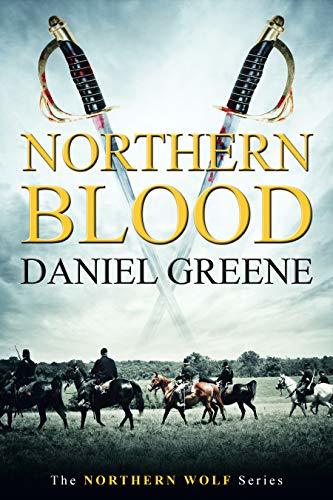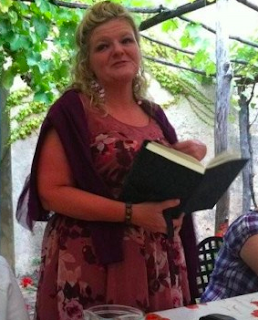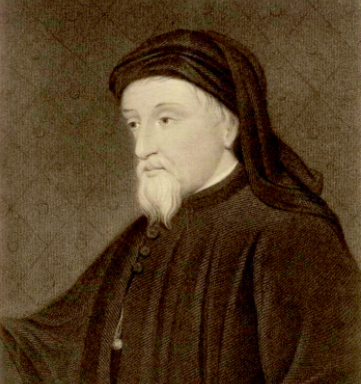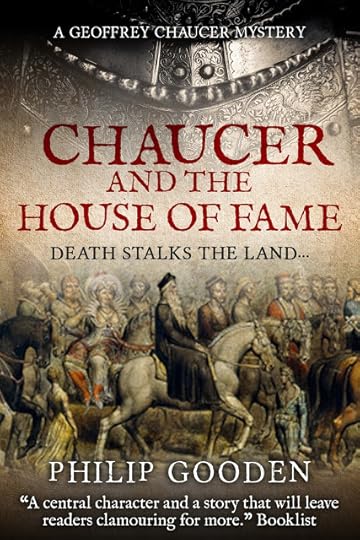Mary Anne Yarde's Blog: The Coffee Pot Book Club , page 69
September 15, 2020
Welcome to Day #7 of the blog tour for The Queen’s Devil (William Constable Spy Thriller, Book #3) by Paul Walker #TheQueensDevil #HistoricalFiction @jroberts1324 @PWalkerauthor

The Queen’s Devil
(William Constable Spy Thriller, Book #3)
By Paul Walker

1583.
William Constable, recently married astrologer and mathematician, has settled into routine work as a physician when he is requested to attend two prisoners in the Tower of London. Both are accused of separate acts treason, but their backgrounds suggest there may be a connection.
Sir Francis Walsingham and Lord Burghley urge William to discover further intelligence from the prisoners while tending their injuries from torture.
The agent's investigations lead him to the French Embassy, which lies at the heart of a conspiracy which threatens the nation.
Through his enquiries, an unsuspecting William becomes entangled in a perilous web of politicking and religious fervour.
The threat comes from one the most powerful men in the English court – one referred to as the Queen’s Devil.
William faces a race against time to unpick these ties, climaxing in a daring raid on the Embassy.
Check out this fabulous review of The Queen's Devil over on The Books Delight.
Click HERE!

September 14, 2020
Philip K Allan is sharing an excerpt from his fabulous #NewRelease — Sea of Wolves #HistoricalFiction #WW2 @PhilipKAllan

Sea of Wolves
By Philip K. Allan

1941 and the fate of the world hangs in the balance. Across the stormy North Atlantic battle rages between wolfpacks of U-boats and escort ships fighting to protect the Allies’ vital convoys. Meanwhile teams of codebreakers at Bletchley Park struggle to penetrate the German navy’s top-secret Dolphin code, and unlock the flow of vital intelligence that will swing the battle in the Allies favour.
Sea of Wolves plots the lives of three people caught up in the centre of the battle. Vera Baldwin, a young crossword-enthusiast, lifted from her quiet suburban life and thrown into the middle of the greatest codebreaking effort the world has seen. Otto Stuckmann, the rookie commander of U70, a German naval veteran struggling with the ceaseless demands being placed on him. Leonard Cole, the newly appointed first lieutenant of HMS Protea and a man with unfinished business to resolve.
Each is unknown to the others as their fates spiral around each other, touching and twisting towards a final encounter that will change their lives forever.
Excerpt
‘Beats me, Ginger,’ said Ward, passing over a headset. ‘Any road, forget his nibs, and get your lugholes in these. Word is we might be busy.’
‘Word is always that we might be busy these days,’ pointed out Butcher, but he accepted the headphones and settled them into place. With one hand he reached forward to adjusted a dial. Then he angled his chair back, and closed his eyes. He seemed asleep, but Ward knew better. In reality he was listening to the cold, deep water that lay all about the ship. Closest to him was the thrum of the Protea’s twin props, as familiar to him now as his own voice, together with the brush of water flowing past the hydrophone. A little more distant was the surging roar of the convoy, constant and booming like the sound of a nearby waterfall. He let his mind drift away, tuning out those sounds and listening for what else might be there, moving in the blackness. He could sense the echoing vastness of the ocean all around him, stretching down to unimaginable depths where the light of day never ventured.
‘Anything?’ whispered Ward. He was the senior of the two, but had long since realised that the apprentice was far more talented than the master. Instead he worked the plot, recording the positions of contacts on a band of paper. Through his headphones all he could hear was rushing water and churning propellers, but knew from experience that his companion could detect so much more. Butcher shook his head, and continued to adjust the dial, sweeping the hydrophone to and fro, searching the open water off to their flank, where any attack would come from. Ward settled himself a little deeper into his chair and sipped at the mug of cocoa he had brought with him. It was going to be a long night. Then Butcher held up one hand, as if about to start conducting an orchestra.
‘What you got, mate?’ asked Ward.
‘There’s something out there,’ he declared.
‘Are you sure, Ginger?’ asked the petty officer, fiddling with his set.
‘I reckon I heard some small props, out on the beam,’ whispered Butcher, with his eyes still closed. ‘Sub on the surface, perhaps, or maybe more than one.’
Ward listened anew, but couldn’t pick anything out from the background noise. ‘You must have the ears of a bleeding bat,’ he muttered and then he froze as her heard a double thump, as if a train wagon was being shunted in a nearby goods yard. Moments later came the faintest of whines.
‘Fish in the water!’ yelled Butcher. ‘I told you it were a bleeding sub!’
Ward ripped open the door of the hut and yelled towards Cole. ‘Torpedoes! Bearing red seventy, sir!’
Pick up your copy of
Sea of Wolves
Philip K Allan

Philip K Allan comes from Hertfordshire where he lives with his wife and two teenage daughters. He has a passion for ships and the sea, having studied maritime history as part of his degree from London University. He is a longstanding member of the Society for Nautical Research, a keen sailor and also writes for the US Naval Institute’s magazine Naval History.
He is author of the Alexander Clay books of age of sail naval fiction. The first novel in the series, The Captain’s Nephew, was published in January 2018, and immediately went into the Amazon top 100 bestseller list for Sea Adventures. Since then he has published seven further Alexander Clay books. His latest work, Sea of Wolves, is his first foray into the Second World War.
Connect with Philip:
Website • Facebook • Twitter • Goodreads.
Check out Lauren Gilbert's fabulous book — A Rational Attachment #HistoricalFiction #RegencyRomance @LaurenGilbert9

A Rational Attachment
By Lauren Gilbert

The only daughter of a wealthy businessman in York, Anne Emmons is aware that her father is eager for her to marry, and to marry well. Anne, however, has always dreamed of marrying for love. Set in the Regency period, Anne’s introduction to London Society is made difficult by her personal aspirations as well as her family’s lack of aristocratic connections. In time, Anne finds her way with the help of family and friends and the surprising support of one of the Ton’s leading figures. As she comes into her own, will she succeed in finding the love she desires, or will she settle for a marriage contracted for mutual convenience?
Pick up your copy of
A Rational Attachment
Amazon UK • Amazon US • Barnes and Noble • Book Depository • Authorhouse
Add A Rational Attachment to your ‘to-read’ list on

Lauren Gilbert

Lauren Gilbert was introduced to English authors early in life. Lauren has a Bachelor of Arts degree in liberal arts English with a minor in Art History. A long-time member of JASNA, she has presented a variety of programs. She lives in Florida with her husband. Her first book, HEYERWOOD A Novel, is in print. Recently released, A RATIONAL ATTACHMENT is her second novel. A regular contributor to the English Historical Fiction Authors blog, her work is included in both volumes of CASTLES, CUSTOMS AND KINGS: True Tales by English Historical Fiction Authors. She is also researching material for a nonfiction work for Pen & Sword Books Ltd.
Connect with Lauren:
Website • Facebook • Twitter • LinkedIn • Amazon Author Page.
Check out Daniel Greene's fabulous #NewRelease — Northern Dawn (Northern Wolf Series Book 4) #HistoricalFiction #AmericanCivilWar

Northern Dawn
(Northern Wolf Series Book 4)
By Daniel Greene

War takes guts and luck to survive...but will it be enough?
Wolf's been promoted. He's helped bring down one of the South's greatest generals. Yet his country still has more to ask of him and the costliest war in America's history rages on.
Sheridan's cavalry raids west to destroy Confederate infrastructure and divert attention from Grant's movement south of the killing fields of Cold Harbor. Yet Wade Hampton and his rebel forces have something else in store for the Union Cavalry Corps.
Wolf quickly finds himself in the hot seat of the largest all-cavalry battle of the war near Trevilian Station. Isolated and surrounded can they survive the coming Southern storm? Or will they be overrun and annihilated, a mere footnote in history?
Excerpt
Custer flicked his reins, and his horse followed the double-ranked line of troopers as they marched into the dark dense forest. Victory’s hooves thumped the ground. The line of blue-clad troopers staggered as they hit the tree line, not from the enemies’ stinging bullets, but from the roughness of the terrain. Snagging roots and vines snared his men’s feet. Branches and leaves scratched over faces and jackets, catching one rank to swing back and hit the next man.
More than once he had to bring his horse to a halt to prevent it from trampling the slow-moving soldiers ahead of him. Alger stumbled over a notched root. “Goddamn this wilderness,” he cursed and caught himself with a hand against a tree. Custer’s eyes ran along the wavering line of blue amongst the green forest. He could barely spot the road and only glimpses of the 6th struggling through the same rough underbrush. He glanced to his left flank. He hoped the 7th would have been able to find a way to squeeze closer to the creek, but a wet lowland forest forced them to slog in murky water up to their ankles, effectively delaying their movement. Gregg was right. This forest is a godforsaken mess. My boys can hardly keep any semblance of order.
“Forward, men!” he called out, his words holding more confidence than was warranted.
They pressed onward until the forest ridge became darker before them, almost a natural wall. Smoke hung low among the trees, a rotting egg odor in the accompanying mist. The forest held its breath. A group of his men clambered over a fallen log. A trooper slipped on leaves, tumbling onto his back. His comrades helped him upright by his elbows.
Zippppp! The shot sounded off near Custer, trailing by his head. He pushed his mustache up beneath his nose and sucked in air. That was close. He quickly drew his pistol. A ripple of fire crackles exploded along the ridge. The trees were sprayed red as balls and bullets struck his men. A man called out. Another cried for his mother. A few mounds of blue lay left behind the advancing troopers.
“There they are, boys!” Alger called out. “Return the favor! Fire!”
His double-filed line fired back, the rear shooting over the front rank’s shoulders at the same time. The men quickly reloaded in only seconds. They stood ready for the command.
“Fire!” shouted a captain. The deadly blaze peppered the enemy line again.
The individual companies of the 5th Michigan repeated the process, and within a minute, they’d unleashed six concentrated volleys on the rebels. They enemy rested silent, clearly overwhelmed by the intensity of such quickly oppressive firepower. A volley went out from the 7th on their left. Good, those boys are in the fight. He eyed the enemy’s earthen-filled log works ahead. The silence continued to respond to his men’s attack. Perhaps they’ve run?
Alger glanced back at him. “You think they ran out of ammunition?”
“I won’t have our boys wasting ammunition on target practice.” Custer regripped his pistol. He used it to gesture to Granger sitting on a horse next to him. The young man looked about ready to faint, his face ashen with fear, yet his cheeks were still colored with heat. “Get word to Major Walker. Tell him to shift his line forward.”
“Yes, sir!” his aide said. He turned his horse, and the forest ahead of them erupted in fire and smoke fit for the depths of hell itself. The Minié balls came for them, seeking their deaths. The bullets buzzed around and through his men, an angry swarm of bees racing to defend their hive with a deadly fury. They struck all around the men. Dozens fell this time.
To Custer’s surprise, his horse screamed, rearing on two legs. He leaned forward to stay on the animal, and the mount twisted sideways. He found himself almost weightless. Don’t crush me, he thought. For a fraction of a second, he thought he might catch himself with his hand. He reached out and he collided with the hard ground. He stretched himself into a roll, throwing leaves and dirt airborne. The beast crashed onto the forest floor next to him, rolling on its back before shifting to his belly. Victory kicked his legs.
Barreling to a stop, Custer popped his head upright. The animal screamed piteously. His men fought on. None had seen their commander go down. Alger raced for him. “Autie!”
Custer puffed air through his mustache. Victory had almost crushed him. It usually wasn’t the fall, but the mount landing atop that injured man.
Ramming his sword into the ground, Alger crouched next to him on a single knee. His hands rested on his commander’s shoulders. “Are you hit?”
He gave his subordinate a brief shake of his head and spit dirt from his mouth. “They gutted the poor fellow.”
Offering him a hand, Alger helped Custer to his feet, brushing off dirt and leaves from his uniform. Victory yawned in terror, foam ringing his mouth, tongue lolling in fear. Custer bent down and scooped up his pistol. He removed leaves from his hair then ran a hand down his uniform. I will not let you suffer. He walked calmly to his mount and without hesitation shot him in the head. Smoke drifted from the barrel.
The engagement carried on. Bullets traded back and forth between opposing forces, sounding as if they were in the center of a drum competition.
Custer shook his head, staring at the dead gray beast. It was a true pity to lose such a fine animal.
“Seventh one?” Alger asked, joining him.
Custer eyed him and let out a sigh. “I believe so.”
“You’re one lucky son of a bitch, Autie.”
The dead animal lay there. It had carried out its duty aptly and full of vigor. Yet none of that mattered. It still lay slaughtered despite its noble service. The same could be said for any of his fallen men. It all came down to luck. Another few inches and that bullet would have struck him in the leg. Another foot and it would have pierced his belly. Either shot would have spared the poor animal. Yet here he stood while his horse lay dead. His luck had held once again. “Luck is only a matter of balancing between survival and disaster.” Luck was as much as a belief as it was a condition of fate. To believe in one’s destiny was a self-fulfilling prophecy.
Alger ducked as a shot struck a tree, cocking his head to the side with a grin. “That one sounded close.”
Custer eyed the rebel works. “Let’s see how lucky those boys over there are.”
Pick up your copy of
Northern Dawn
Daniel Greene

Daniel is the award-winning author of The End Time Saga and the historical fiction Northern Wolf Series. Whether it’s a saber charge in the American Civil War or a gun battle between two rival bands surviving a hellish landscape, he is known for his ability to embed every page with fast-paced action, thrilling suspense, and gritty realism.
He is an avid traveler and physical fitness enthusiast with a deep passion for history. The works of George R.R. Martin, Steven Pressfield, Bernard Cornwell, Robert Jordan, and George Romero have inspired his work. Although he is a Midwesterner for life, he's lived in Virginia long enough to consider it home.
He is a proud member of the Horror Writers Association and the Historical Novel Society.
Connect with Daniel:
Website • Facebook Author Page • Facebook Fan Club • Instagram.
Check out Mercedes Rochelle's fabulous book — The King's Retribution (Book Two of The Plantagenet Legacy) #Medieval #HistoricalFiction @authorrochelle

The King's Retribution(Book Two of The Plantagenet Legacy)By Mercedes Rochelle

If you read A KING UNDER SIEGE, you might remember that we left off just as Richard declared his majority at age 22. He was able to rise above the humiliation inflicted on him during the Merciless Parliament, but the fear that it could happen again haunted him the rest of his life. Ten years was a long time to wait before taking revenge on your enemies, but King Richard II was a patient man. Hiding his antagonism toward the Lords Appellant, once he felt strong enough to wreak his revenge he was swift and merciless. Alas for Richard, he went too far, and in his eagerness to protect his crown Richard underestimated the very man who would take it from him: Henry Bolingbroke.
The Coffee Pot Book Club
★★★★★
Highly Recommended
Read the full review HERE!

Pick up your copy ofThe King's RetributionAmazon UK • Amazon US
Mercedes Rochelle
 Born in St. Louis MO with a degree from University of Missouri, Mercedes Rochelle learned about living history as a re-enactor and has been enamored with historical fiction ever since. A move to New York to do research and two careers ensued, but writing fiction remains her primary vocation. She lives in Sergeantsville, NJ with her husband in a log home they had built themselves.
Born in St. Louis MO with a degree from University of Missouri, Mercedes Rochelle learned about living history as a re-enactor and has been enamored with historical fiction ever since. A move to New York to do research and two careers ensued, but writing fiction remains her primary vocation. She lives in Sergeantsville, NJ with her husband in a log home they had built themselves.Connect with Mercedes: Website • Blog • Facebook • Twitter.
September 13, 2020
#BookReview — Northern Blood (Northern Wolf Series, Book 3) by Daniel Greene #HistoricalFiction #AmericanCivilWar

Northern Blood
(Northern Wolf Series, Book 3)
By Daniel Greene

To win the war, hands will get dirty....
With the installment of Ulysses S. Grant as the head of the Union armies, plans have been put into place to dismantle the Confederate war machine once and for all. But, you can't fight decisive battles against evasive opponents that fade into the landscape and strike like lightning in the night.
A daring raid is devised to draw the Confederate cavalry into a winner-take-all showdown. The Union needs a group of soldiers just brazen enough to do it or die trying. Libby Prison's most recent escapee, Johannes Wolf, and his unit of misfits, might just be the ones to get the job done - if they don't kill each other first.
Wolf embarks on a dangerous mission behind enemy lines to set J. E. B. Stuart, the Knight of the Golden Spurs, off-kilter and force him on to the battlefield.
What might drive a gentleman soldier like J. E. B. Stuart mad?
Kidnapping his wife.
Can Wolf and company accomplish their mission? Or will they hang from the gallows as war criminals?

“A man must live with the decisions he makes.”
Never a truer word was spoken. But this was war, and sometimes decisions have to be made in the moment, only to be regretted at leisure. If Johannes Wolf had not lied, then he may well have escaped the torture, but he would have just as likely died on Belle Isle — not that Libby Prison guaranteed his life.
For Wolf, the war was over, at least for now. All he had to do was survive or, if there was a chance, escape. But even if he were to escape Libby Prison then death awaited him – for he was impersonating an officer and that was a hanging offence regardless of whichever army you marched with…
From the desperate squalor of Libby Prison to a dangerous and secret mission behind enemy lines, Northern Blood (Northern Wolf Series, Book 3) by Daniel Greene is an enthralling story that grabs the reader from the opening sentence and does not let go until that fatal full stop.
The Northern Wolf Series by Daniel Greene is extraordinarily successful, and with the dramatic cliff hanger in Northern Hunt (Northern Wolf Series Book 2), I could not wait to find out where this story would take our brave protagonist, Johannes Wolf, next. When a series is such a page-turner, I am always slightly concerned that the author is going to run out of steam, that the story is going to lose momentum. I should have known better than to concern myself with such tedious trepidations, for Greene picks up where he left off, and he has presented his readers with a comprehensively brilliant book. This novel is packed with explosive action and unforgettable characters.
The narrative grabs hold of the reader and takes them on a journey through a war-torn country whose fields are soaked with the blood of its compatriots. The harrowing cries of a wounded horse and the desperate tears of a soldier who will never see his wife again are brought vividly back to life in all of its despondency. This is a story that is graphic in its depictions of battles fought, but it is also a spoken memorial of all the countless soldiers who died during the Overland Campaign of 1864. This attention to such penetrating and shocking detail gives the reader a harrowing front-row seat as the Union Army clashes with the Confederacy forces. The exhaustion of the soldiers, as well as their utter bewilderment as they try to bring comfort to their dying friends, certainly brought a tear to my eye. Greene demonstrates most ardently that there is nothing glamorous about war. This is a novel which, despite its strong sense of foreshadowing, cannot prepare the reader for the realities of what the characters in this book were to face.
Once again, we navigate the American Civil War with Johannes Wolf — a man who comes from nothing but finds a home in the Union Army. Wolf is a character that I have really connected with – his journey from town drunk to a respected soldier has been truly remarkable. I would go as far to say that Wolf’s depiction reminds me very much of Bernard Cornwell's Richard Sharpe, for he is the same sort of underdog, an unlikely hero who men will follow willingly into Hell and back. By using a lowly soldier as the protagonist, Greene allows his readers to witness this war from a soldier's perspective rather than an officer, which makes this story all the grittier and more realistic in the telling.
Another character that really stood out for me was James Ewell Brown "Jeb" Stuart, a celebrated cavalry commander of the Confederate States Army. Although Greene uses a little creative licence in his depiction and the circumstances surrounding his death, I thought his portrayal was fabulous. His intelligence, his love for his wife, and the respect he received from his men was carefully drawn and very real in the telling.
With careful attention to historical detail — the battles, the historical characters, the landscape, and the era, Greene has penned a novel that is as dramatic as it is beguiling. The backdrop to this story, as it was during the war, is enormous, but Greene has undoubtedly done it justice. This book is a work of flawless historical scholarship. Greene demonstrates how confident he is writing about this era through his enthralling narrative. Even when Greene merges fact with fiction, there is still a realism to his writing, which is something that I always look for in Historical Fiction. Greene is certainly a master at his craft for he balances the history with the story very carefully, and what he has written is a simply glorious book.
This book, this series, is next to impossible to put down. One more paragraph becomes one more page, one more page becomes one more chapter, but even then, I did not want to stop. I had to read on. I had to find out how this story was going to end. The Northern Wolf series is one of the best depiction of the American Civil War that I have ever read, and although Northern Hunt stands very firmly on its own two feet, you would be doing yourself a grave disservice if you did not start with Book 1. This is a series that does not threaten to mesmerise, it really does.
I Highly Recommend.
Review by Mary Anne Yarde
The Coffee Pot Book Club.
Pick up your copy of
Northern Blood
Add Northern Blood to your ‘to-read’ list on

Daniel Greene

Daniel is an award-winning and best-selling multi-genre author. He made his debut in the post-apocalyptic genre and quickly became known as a must read with his award-winning and best-selling hit The End Time Saga. His deep passion for history has inspired him to tackle the historical fiction genre with launch of the best-selling Northern Wolf Series.
He is an avid traveler and physical fitness enthusiast. He fulfilled a quest of iron by worshipping at the shrine of Arnold Schwarzenegger, in Graz, Austria, an experience he will never forget. If he isn’t working on his next book, you can find him training to survive the impending rise of the dead.
He is a proud member of the Horror Writers Association and the Historical Novel Society. Although a Midwesterner for life, he’s lived long enough in Virginia to call it home.
Connect with Daniel:
Website • Facebook • Goodreads.
Check out Drēma Drudge's fabulous book — Victorine #HistoricalFiction #Art @dremadrudge

VictorineBy Drēma Drudge

In 1863, Civil War is raging in the United States. Victorine Meurent is posing nude, in Paris, for paintings that will be heralded as the beginning of modern art:
Manet's Olympia and Picnic on the Grass.
However, Victorine's persistent desire is not to be a model but to be a painter herself. In order to live authentically, she finds the strength to flout the expectations of her parents, bourgeois society, and the dominant male artists (whom she knows personally) while never losing her capacity for affection, kindness, and loyalty. Possessing both the incisive mind of a critic and the intuitive and unconventional impulses of an artist, Victorine and her survival instincts are tested in 1870, when the Prussian army lays siege to Paris and rat becomes a culinary delicacy.
Drema Drudge's powerful first novel Victorine not only gives this determined and gifted artist back to us but also recreates an era of important transition into the modern world.
The Coffee Pot Book Club
★★★★★
Highly Recommended
Read the full review HERE!

Pick up your copy ofVictorineAmazon
Drēma Drudge
 Drēma Drudge suffers from Stendhal’s Syndrome, the condition in which one becomes overwhelmed in the presence of great art. She attended Spalding University’s MFA in Creative Writing Program where she learned to transform that intensity into fiction.
Drēma Drudge suffers from Stendhal’s Syndrome, the condition in which one becomes overwhelmed in the presence of great art. She attended Spalding University’s MFA in Creative Writing Program where she learned to transform that intensity into fiction.Drēma has been writing in one capacity or another since she was nine, starting with terrible poems and graduating to melodramatic stories in junior high that her classmates passed around literature class.
She and her husband, musician and writer Barry Drudge, live in Indiana where they record their biweekly podcast, Writing All the Things, when not traveling. Her first novel, Victorine, was literally written in five countries while she and her husband wandered the globe. The pair has two grown children.
In addition to writing fiction, Drēma has served as a writing coach, freelance writer, and educator. She’s represented by literary agent Lisa Gallagher of Defiore and Company.
Connect with Drēma: Website • Twitter • Instagram • The Painted Word Salon.
September 11, 2020
Welcome to Day #4 of the blog tour for The Queen’s Devil (William Constable Spy Thriller, Book #3) by Paul Walker #TheQueensDevil #HistoricalFiction @PWalkerauthor
The Queen’s Devil
(William Constable Spy Thriller, Book #3)
By Paul Walker

1583.
William Constable, recently married astrologer and mathematician, has settled into routine work as a physician when he is requested to attend two prisoners in the Tower of London. Both are accused of separate acts treason, but their backgrounds suggest there may be a connection.
Sir Francis Walsingham and Lord Burghley urge William to discover further intelligence from the prisoners while tending their injuries from torture.
The agent's investigations lead him to the French Embassy, which lies at the heart of a conspiracy which threatens the nation.
Through his enquiries, an unsuspecting William becomes entangled in a perilous web of politicking and religious fervour.
The threat comes from one the most powerful men in the English court – one referred to as the Queen’s Devil.
William faces a race against time to unpick these ties, climaxing in a daring raid on the Embassy.
Check out this fabulous review of The Queen's Devil over on Candlelight Reading
Click HERE!

September 10, 2020
Join me in conversation with Historical Fiction author, Philip Gooden #Medieval #HistoricalFiction #Chaucer @PhilipGooden @SharpeBooks

A Conversation with author
Philip Gooden

Please give a warm Coffee Pot Welcome to Historical Fiction author, Philip Gooden.
Mary Anne: Hi Philip, I am so glad you could stop by and chat with us today. A huge congratulations on your fabulous series, Geoffrey Chaucer Mysteries. Could you tell us a little about your books and how you came to write them?
Philip Gooden: Thanks, Mary Anne. It’s good to be featuring on your blog.
I started writing fiction with a series of historical mysteries set around Shakespeare’s Globe theatre in Southwark. For my next series, I jumped back a couple of centuries and fastened on Geoffrey Chaucer as a central character.
Why Chaucer? Quite apart from his poetry, he had an intriguing, eventful life, parts of which are still obscure. As a young man he’d been a member of the household of Lionel, Duke of Clarence, one of the sons of King Edward III. Still under 20, he fought in one of Edward’s interminable campaigns in France, where he was taken prisoner and ransomed.
 A portrait from the Welsh Portrait Collection at the National Library of Wales. Depicted person: Geoffrey Chaucer – English poet and author, 1343-1400 - Wikipedia.
A portrait from the Welsh Portrait Collection at the National Library of Wales. Depicted person: Geoffrey Chaucer – English poet and author, 1343-1400 - Wikipedia.
Later on, Chaucer travelled to Italy and Spain on diplomatic missions for the king. He came from what we’d now consider a middle-class background - his father was a wine merchant - but he was upwardly mobile, and a natural networker. His sister-in-law was Katherine Swynford, who eventually became the third wife of John of Gaunt, another of Edward’s sons.
So, having Chaucer operate as an agent, half-diplomat, half-spy, seemed quite plausible. In the first book, Chaucer and the House of Fame, he returns to Aquitaine to the castle of the nobleman who had been his captor years before. In the second. Chaucer and the Legend of Good Women, he travels to Florence to borrow money on the king’s behalf - money required for warfare, of course.
Mary Anne: Why do you think Chaucer’s work is still so incredibly popular? And what made you decide that the father of English poetry would be the perfect protagonist for your series?
Philip Gooden: Not so many people read Chaucer in the original Middle English (though he’s not as difficult as all that) but his stories, and especially the Canterbury Tales, are very well-known in modern versions. The group of narrators, pilgrims on the way to the shrine of Thomas à Becket in Canterbury cathedral, showcase a cross-section of medieval society from knights to con men, from refined prioresses to much-married women of the world.
The artist William Blake did a frieze of the pilgrims on the road and sections of it provide the covers of the books in my series. They make great covers.
 William Blake - Chaucer's Canterbury Pilgrims Picture The Canterbury Pilgrims, 1808 - Wikipedia.
William Blake - Chaucer's Canterbury Pilgrims Picture The Canterbury Pilgrims, 1808 - Wikipedia.
The idea of people telling tales to pass the time is as old as the hills. The stories themselves can be noble or bawdy, high-minded or cynical, and often come with a pleasing twist. In each book in the Medieval Blood series, I’ve taken one or more of these Canterbury Tales and incorporated it into the action. Whether Chaucer was a detective or a spy is debatable, but one thing is certain: he was a fine story-teller.
The man himself is shadowy. In his writing, he comes across as shrewd, tolerant, inquisitive - all qualities that make for an intriguing protagonist, and especially one who delves into mysteries.
Mary Anne: What were the challenges you faced in researching this period of history and were there any unexpected surprises?
Philip Gooden: One of the surprises is how much people travelled in the Middle Ages. We think of the medieval population, apart from the king and his court, as not venturing far beyond the confines of their village or town. While this would have been the case for many, there was still plenty of movement. Trade, commerce and warfare entailed travel. Pilgrimages seemed to have functioned as the medieval equivalent of a package holiday, to judge by the bustling high spirits of the Canterbury pilgrims and their appetite for food, drink and fun. And Chaucer himself journeyed in western Europe, something Shakespeare never did.
Mary Anne: What do you think is the most challenging aspect of writing Historical Fiction?
Philip Gooden: The hardest part, I think, is trying to put yourself in the mindset of people who lived hundreds of years ago. Human nature may not change much, which is one reason why Chaucer’s observations about people still ring true, but circumstances change, as do manners and customs.
For example, it’s difficult for us to envisage to imagine a society so permeated by religion and the church as was Chaucer’s era. A third of the pilgrims riding to Canterbury in the 1380s and telling their tales are directly connected with organised religion. It is literally their life and their livelihood even if several of them, like the well-fed monk with his taste for hunting, fall short of the ideal while others, like the Pardoner passing off sheep’s bones as saint’s relics, are actively corrupt.
Another hurdle is the kind of language to use. To have your characters speak ‘Middle English’, even if it were possible to imitate, would make your story of limited interest, if not completely incomprehensible. But to use a very contemporary style - ‘Way to go, Chaucer!’ - is going set some people’s teeth on edge, and it detracts from the slight sense of ‘otherness’ you need in historical writing. So maybe something in the middle, Goldilocks-style, not fusty but not employing this morning’s slang either. That said, there are historical writers who write very successfully in a contemporary style, Lindsey Davis, for example.
Mary Anne: What advice do you have for aspiring Historical Fiction authors?
Philip Gooden: The story comes first. Don’t get hung up on historical accuracy. Respect the facts but don’t be a slave to them. Chaucer wrote happily about life in ancient Troy, in his long poem ‘Troilus and Criseyde’, without the benefit of historical or archaeological research.
Mary Anne: Thank you so much for stopping by today!
If you would like to find out more about Paul’s fabulous series, the Geoffrey Chaucer Mysteries, then you know what to do SCROLL DOWN!
Geoffrey Chaucer Mysteries
By Philip Gooden
The Medieval Blood series is a group of four mystery novels featuring Geoffrey Chaucer, the author of the Canterbury Tales. Chaucer was never ‘just’ a poet. He was a soldier when young, and an emissary for the king later on. He was a courtier with a head for business and an active public life.
In the first book in the series, Chaucer and the House of Fame, he returns to France, where he fought (and was ransomed after capture) as a young man. Chaucer’s mission is to ensure the loyalty of a prominent nobleman in Aquitaine, the vast region in central France which was under English control. Needless to say, things do not go smoothly.

The second book, Chaucer and the Legend of Good Women, sees Geoffrey in Florence, the city of Dante and Petrarch, poets he much admired. Now he has to negotiate a loan on behalf of the English king from a Florentine banker. But a suspicious and peculiar death disrupts Chaucer’s plans and endangers his own life.

Chaucer and the Doctor of Physic is set in Devon, among alchemists, wreckers and murderers. The principal location, a medieval mansion on the River Dart, is a deliberate echo of Greenways, Agatha Christie’s fine house overlooking the river.

The fourth book, Chaucer and the Vintry Ward Death, introduces us to Chaucer as a young man in 1359, on his way to fight in the French wars. It’s a murder mystery but also features a storyteller in the Tabard Inn in Southwark, the kind of storyteller and tale which might have inspired Geoffrey Chaucer in his own Canterbury Tales.

Pick up your copies of the
Geoffrey Chaucer Mysteries
Philip Gooden

Philip Gooden writes fiction and non-fiction. His historical stories are set in the time of Chaucer, in Shakespeare’s London and in the cathedral cities of Victorian England. The Pale Companion, one of the Nick Revill Elizabethan mysteries, was shortlisted for the Ellis Peters Historical Dagger. Philip also writes books on words and language including The Story of English, Who’s Whose and the award-winning Faux Pas. His most recent book is Bad Words, which is about bad language (and other matters). Philip was chairman of the UK Crime Writers’ Association in 2007-8.
Connect with Philip:
Check out Melissa Addey's fabulous book — The Fragrant Concubine #HistoricalFiction #China @MelissaAddey

The Fragrant Concubine
By Melissa Addey

18th century China. The Emperor conquers a Muslim country and a local woman is sent to the Forbidden City to become his new concubine. She is beautiful and the Emperor begins to fall in love with her, but is she really who she says she is, or is the Emperor in danger? Based on the legends that grew up around a real woman.
Pick up your copy of
The Fragrant Concubine
Add your copy of The Fragrant Concubine to your ‘to-read’ list on

Melissa Addey

I mainly write historical fiction, one series set in 18th century China, one set in 11th century Morocco: my first novel, The Fragrant Concubine, was Editor’s Choice at the Historical Novel Society, my latest, The Cold Palace, won the 2019 Novel London award. I was the Leverhulme Trust Writer in Residence at the British Library and now run regular writing workshops there. I live in London, UK with my husband and two children. I have just completed a PhD in Creative Writing and I’m currently working on a series set in Ancient Rome.
Readers can visit my website, www.MelissaAddey.com, to watch book trailers and get a free novella from my Moroccan Empire series.
The Coffee Pot Book Club
...more
- Mary Anne Yarde's profile
- 159 followers



